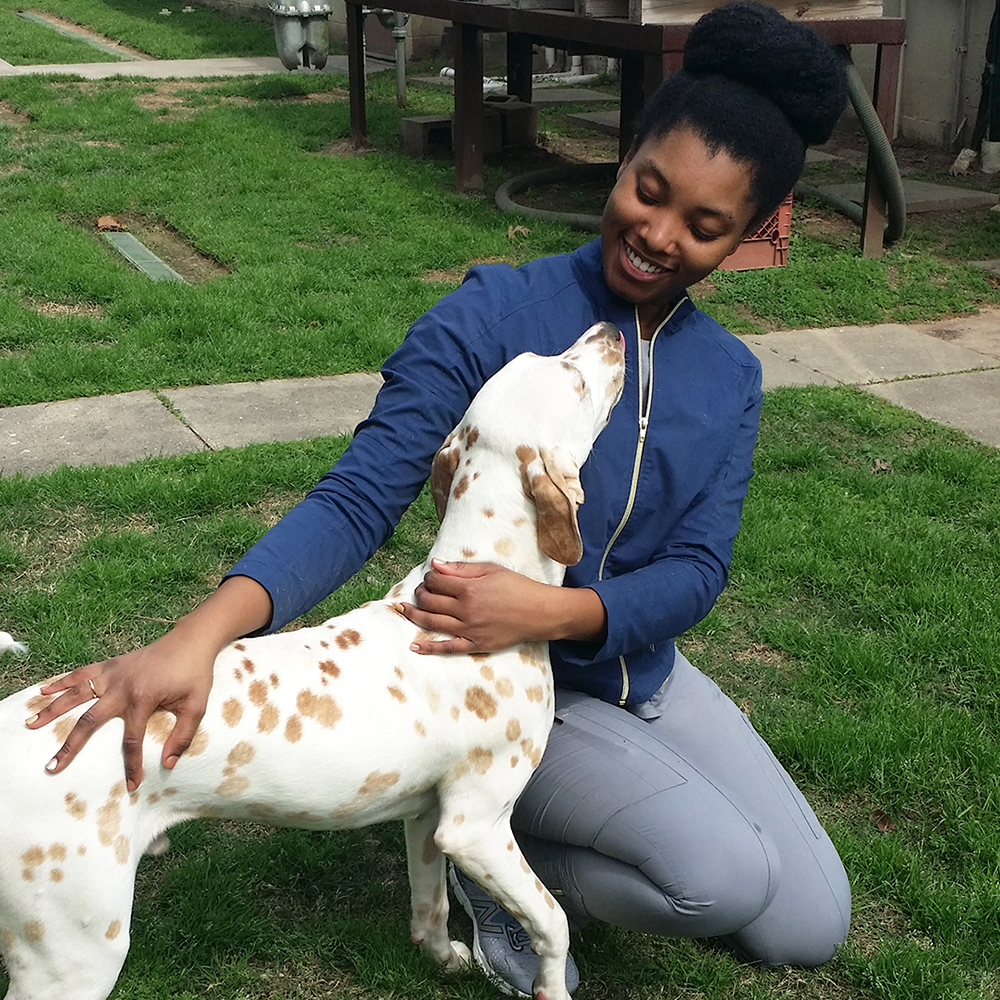
World Veterinary Day:Dr. Aziza Glass
Reading Time: 3 minutesWhat made you decide to become a veterinarian?
I chose veterinary medicine because of my affinity towards animals. I wanted to learn about what makes them tick and how to fix them if they became broken. Also, I knew I wanted to do something at the graduate school level because I wanted to be called “doctor”. For awhile, I’d debated between going the research route, where I’d be studying more of animal behavior, and the clinical route, which would mean going into veterinary medicine as a general practitioner. Getting into Cornell’s vet school was what ultimately determined my path.
What are the most challenging aspects of vet school, and how did you overcome those challenges?
Going through and finishing vet school is the most difficult thing I’ve ever had to do in my life. I’d tell anyone who wants to do it that it’s pertinent they know this is what they want to do. A lot of blood, sweat and tears go into it. If you’re doing it for the wrong reasons, it’s going to be that much harder to finish. But if it’s truly a goal of yours, a passion of yours, then it’s going to be easier to find that motivation to push through whenever you hit a road block. You just have to take it one day at a time – one lesson at a time, one test at a time, one semester at a time. I also have never prayed in my entire life as I did during my four years in vet school.
Why did you choose to go the general practitioner route?
I wanted to be a general practitioner and not a specialist because it fits me and how I am with people. I like to be able to see my clients for a prolonged period of time. As a general practitioner, I get to see the kittens and puppies, and then I get to see them as adults – it’s like the equivalent of a family doctor. Also, I get to do everything from preventative care to emergency surgeries. I love the variety.

What’s one thing you wish you’d learned in school that you had to learn on the job?
I wish we’d gotten more surgery experience. Unfortunately, unless you’re doing an internship where you’re exposed to an insane amount of surgeries, you get limited hands-on exposure at school. I helped and assisted in various types of surgeries, but the ones where I was the principal surgeon were very limited. I would have liked to know, for example, how to remove a foreign body. Dogs tend to eat stuff like leashes and whatnot, so you often have to surgically remove items from their bodies. I’m thankful that my education prepared me to perform my first few surgeries well, but I would have felt more confident in the early stages of my career if I’d gotten that experience in school.
What advice do you have for someone who is thinking about heading down this path?
For anyone who’s thinking about going to vet school, I’ll reiterate that this can be the most difficult yet the most rewarding thing you will ever do. You will be overwhelmed by the thrill and excitement of working with animals all of the time, but you will also be terrified by the challenge of work and school. Make sure it is truly what you want to do. All that you’ll go through will be a wonderful growth experience, and by the time you walk across that stage and get addressed as “Doctor”, everything will have been so worth it. You’ll finally be able to treat your family’s and friends’ pets, which is probably what you’ve always wanted to do. So just keep on keeping on. It is a marathon, not a sprint.
 Shop this post: Jacket (The Biker Jacket – Estate Navy Blue) / Pant (The Moto Pant – Graphite)
Shop this post: Jacket (The Biker Jacket – Estate Navy Blue) / Pant (The Moto Pant – Graphite)
Have a question for Aziza? Leave it in the comments below!
About Aziza
Dr. Aziza Glass is a Doctor of Veterinary Medicine graduate from Cornell University who currently practices in Houston, Texas; additionally, Dr. Glass can be seen on NatGeoWild’s “Vet School.” You can hear more from Dr. Glass at www.azizaglass.com.